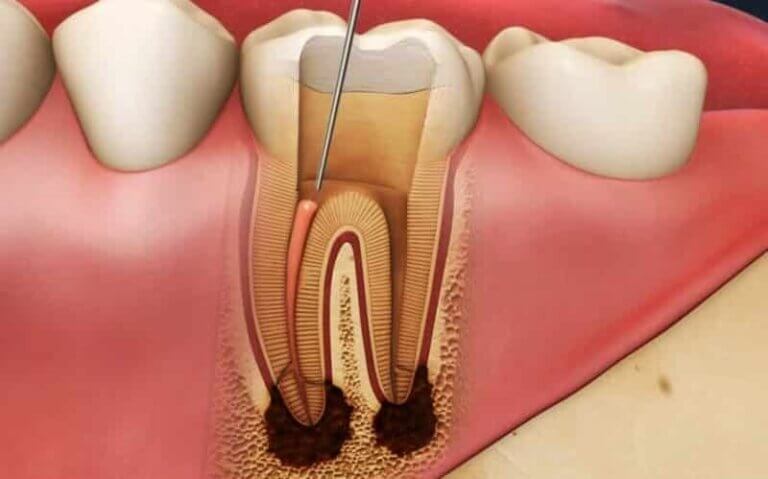Toothache

What Is A Toothache?
A Toothache refers to pain in or around a tooth. It can stem from various causes, including tooth decay, infections, fractures, or gum problems. Toothaches may feel sharp, throbbing, or like a dull ache, and the severity can vary. If ignored, a toothache can lead to serious dental issues such as abscesses, tooth loss, or the need for root canal treatment.
Before you contact a Toronto dentist to examine your toothache, there are some things you should know as a patient:
- Why Do I Have A Toothache?
- Signs And Symptoms Of A Toothache
- Treatment Options For A Toothache
- Managing A Toothache Until You Can See The Dentist
- Frequently Asked Questions About Toothaches
It’s essential to seek prompt dental care if you experience tooth pain or discomfort. If you have questions about a toothache or other dental problems, please contact us for more information.
Why Do I Have A Toothache?
Here are some common reasons why you may be experiencing tooth pain:
- Tooth Decay: Cavities caused by bacteria breaking down sugars in your mouth can expose sensitive inner tooth layers, leading to pain.
- Gum Disease: Plaque and tartar buildup can inflame your gums, causing sensitivity and discomfort. Advanced gum disease can result in loose teeth or tooth loss.
- Tooth Fracture: Cracks from injury, biting hard foods, or wear over time can expose nerves, causing sharp pain.
- Dental Abscess: A bacterial infection in the tooth’s root or gums can cause severe pain, swelling, and fever.
- Dental Sinus Infection: Pressure from sinus infections can sometimes mimic a toothache, especially in the upper back teeth.
- Bruxism: Grinding or clenching teeth can wear down enamel and lead to pain over time.
If you’re experiencing a toothache, it’s important to schedule an examination with a dentist to identify the underlying cause and get the appropriate treatment. If you have further questions about a toothache, please contact us.

Signs And Symptoms Of A Toothache
Toothaches can manifest in different ways, and the symptoms you experience may depend on the underlying cause of your tooth pain. Here are some common signs and symptoms of a toothache:
- Pain or Sensitivity: Sharp, throbbing, or dull aches that worsen with temperature changes or sweet foods.
- Swelling or Redness: Gum or facial swelling around the affected tooth, sometimes with a visible bump.
- Fever or Headache: In some cases, a toothache due to some kind of bacterial infection or dental abscess may cause a fever or headache. A fever is body temperature over 38 degrees Celsius.
- Foul Taste or Bad Odor: You may notice a foul taste or odor in your mouth. This is caused by the buildup of pus and bacteria.
- Difficulty Chewing or Biting: Tooth pain can make it difficult to chew or bite down on food, especially if the affected tooth is a molar or premolar.
- Pain When Tapping on the Tooth: Your dentist may perform a “percussion test” to help diagnose the cause of your toothache. This involves tapping on the affected tooth to see if it causes pain.
If you’re experiencing any of these signs or symptoms, it’s important to schedule a dental exam to determine the underlying cause of your tooth pain and get the appropriate treatment. If you have further questions about a toothache, please contact us.
Treatment Options For A Toothache
The treatment for a toothache will depend on the underlying cause of the pain. Here are some common treatment options for toothaches:
- Dental Filling: Cavities are treated by removing decayed material and filling the space with tooth-colored composite.
- Root Canal Treatment: For infections or decay reaching the tooth’s pulp, this procedure removes the diseased tissue, cleans the canal, and seals it.
- Dental Crown: Severely damaged teeth may need a crown to restore their shape, strength, and function.
- Tooth Removal: If the tooth cannot be saved, it may need removal. Options like dental implants or bridges can replace missing teeth.
- Teeth Cleaning: For gum disease, professional cleaning removes plaque and tartar below the gum line.
- Night Guard: Protects teeth from damage caused by grinding during sleep.
The appropriate treatment for a toothache will depend on the underlying cause, and it’s important to consult with a dentist to determine the best course of action. If you have further questions about treatment options for a toothache, please contact us.

Managing A Toothache Until You Can See The Dentist
If you can’t see a dentist immediately, these tips may help ease your pain:
- Use Pain Relievers: Over-the-counter medications like ibuprofen or acetaminophen can reduce inflammation and pain.
- Apply a Cold Compress: Reduce swelling and numb pain by applying an ice pack wrapped in a cloth to your cheek for 15–20 minutes.
- Rinse With Salt Water: A warm saltwater rinse can reduce bacteria and soothe inflamed gums. Mix 1 teaspoon of salt in a glass of warm water and rinse for 30 seconds.
- Avoid Hard or Hot Foods: Stick to soft, room-temperature foods to avoid aggravating the tooth.
- Maintain Oral Hygiene: Brush and floss gently around the painful area to keep it clean. Use sensitivity toothpaste if necessary.
While these tips can help manage toothache pain, it’s important to schedule a dental exam as soon as possible to identify the underlying cause and get the appropriate treatment. A toothache can be a sign of a serious dental problem, and delaying treatment can lead to more pain and complications. If you have further questions about a toothache, please contact us.
Frequently Asked Questions About Toothaches
- How do I know if my toothache is serious?
If the pain is severe, lasts more than 24–48 hours, or is accompanied by fever, swelling, or a foul taste, contact a dentist immediately.
- Can a toothache go away on its own?
While mild tooth pain might subside temporarily, the underlying issue usually persists and can worsen without treatment.
- What’s the best home remedy for toothache pain?
Rinsing with warm salt water and using over-the-counter pain relievers can provide temporary relief, but a dentist should address the root cause.
- Can stress cause toothaches?
Yes, stress-related teeth grinding (bruxism) can lead to tooth pain or sensitivity over time.
Don’t let a toothache ruin your day. At Atlas Dental, we’re here to diagnose the cause of your pain and provide the care you need to restore your smile. Contact us today to schedule your appointment!

